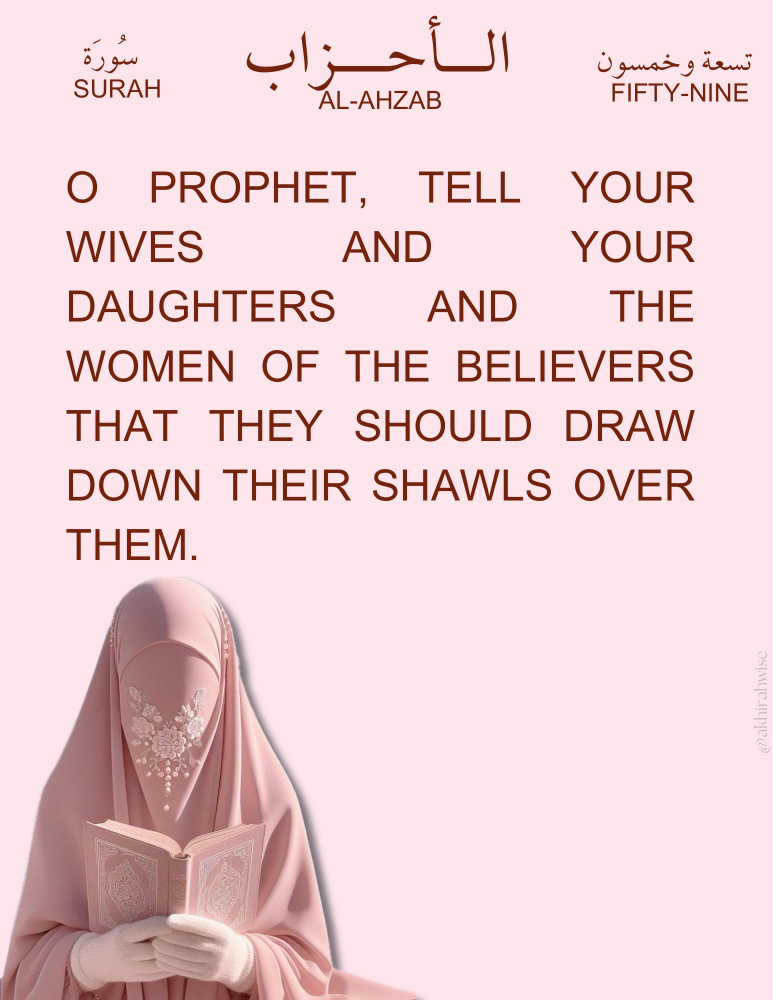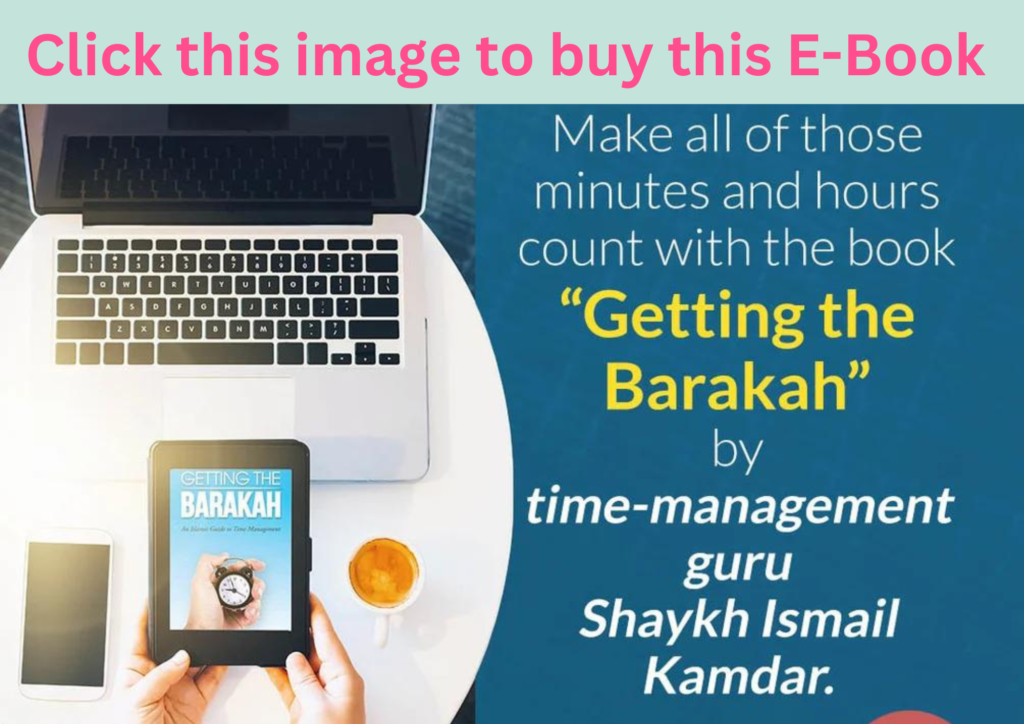Think about your favorite items, the items that you would never leave sitting in the open, uncovered, for anyone to look at and grab for themselves. This can be jewelry, your phone, laptop, special clothing, books, anything that you don’t want others to have.
Does it make sense to leave these things out in the open, without any protection whatsoever? Of course it doesn’t.
In no way I am comparing women to objects with my previously stated example. I am simply putting forth an example, of something that is precious, must be protected and kept hidden.
Think about it this way. To ensure the protection of an expensive car, it is painted in such a way where water and other liquids will not be able to damage it. It is built to withstand bad weather conditions. When the car is bought, the owner also buys insurance in case anything happens to the car. The owner keeps the car safely in his garage, while some even place covers over their car for added protection.
If such lengths are taken to ensure the protection of something materialistic – something that is a piece of metal on wheels – why shouldn’t the same lengths, if not more, be taken to protect a woman, who is a living, breathing, human being?
As stated in Surah An-Nisa, Ayah 34:
ٱلرِّجَالُ قَوَّٰمُونَ عَلَى ٱلنِّسَآءِ بِمَا فَضَّلَ ٱللَّهُ بَعْضَهُمْ عَلَىٰ بَعْضٍۢ وَبِمَآ أَنفَقُوا۟ مِنْ أَمْوَٰلِهِمْ ۚ
Men are the protectors and maintainers of women, because Allah has given the one more (strength) than the other, and because they support them from their means.
It is mentioned that men are the قَوَّٰمُونَ (qawwamun) of women. What is a qawwam? A qawwam is a man who protects and maintains the women in his family. Common sense tells us that if something requires protection and maintenance as instructed by Allah سُبْحَٰنَهُۥ وَتَعَٰلَىٰ, then the thing which requires this must be something precious, and not to be left unattended.
The word qawwam comes from the word qawm which means to stand, but it also means to commit, to be serious, to take care, to maintain something. Taking in these meanings, what is the verse {4:34} instructing men to do with women? To maintain, take care, to be serious, and to commit to the women under their care. Their mothers, wives, sisters, and daughters all fall under this category.
There are a multitude of ways how a woman should be protected, but in this article, I will focus on one major way: the act of covering up and veiling one’s body.
As stated in Surah Al-Ahzab, Ayah 59:
يَـٰٓأَيُّهَا ٱلنَّبِىُّ قُل لِّأَزْوَٰجِكَ وَبَنَاتِكَ وَنِسَآءِ ٱلْمُؤْمِنِينَ يُدْنِينَ عَلَيْهِنَّ مِن جَلَـٰبِيبِهِنَّ ۚ ذَٰلِكَ أَدْنَىٰٓ أَن يُعْرَفْنَ فَلَا يُؤْذَيْنَ ۗ وَكَانَ ٱللَّهُ غَفُورًۭا رَّحِيمًۭا
O prophet, tell your wives and your daughters and the women of the believers that they should draw down their shawls over them. That will make it more likely that they are recognized, hence not teased. And Allah is Most-Forgiving, Very-Merciful.
Here Allah tells His Messenger (peace be upon him) to command the believing women — especially his wives and daughters, because of their position of honor — to draw their Jilbabs over their bodies, so that they will be distinct in their appearance from the women of the Jahiliyyah and from slave women. (Ibn Kathir)
Muhammad bin Sirin said, “I asked Ubaydah As-Salmani about the Ayah:
يُدْنِينَ عَلَيْهِنَّ مِن جَلَـبِيبِهِنَّ
draw down their shawls over them.
He covered his face and head, with just his left eye showing.”
Al-Jawhari said: “The Jilbab is the outer wrapper.” Ali bin Abi Talhah (may Allah be pleased with him) reported that Ibn Abbas (may Allah be pleased with him) said that Allah commanded the believing women, when they went out of their houses for some need, to cover their faces from above their heads with the Jilbab, leaving only one eye showing. (Ibn Kathir)
According to this interpretation by Ibn Kathir, it is made clear that the verse is instructing the believing women to cover their bodies, hair, and face, with simply the eyes showing. This is the proper way of veiling oneself. The word used in the ayah was جَلَـبِيبِهِنَّ (jalabibihinna), meaning jilbab. What is a jilbab? This refers to a long, loose fitting outer garment, worn by women. Notice how the word that we most commonly associate with veiling, hijab, was not used. The reason for this being is that hijab refers to a barrier, while that term loosely fits with covering one’s body, the term jalabibihinna was a better fit for the instructions in this verse.
Another mention of veiling stated in Surah An-Nur, Ayah 31, it says:
وَقُل لِّلْمُؤْمِنَـٰتِ يَغْضُضْنَ مِنْ أَبْصَـٰرِهِنَّ وَيَحْفَظْنَ فُرُوجَهُنَّ وَلَا يُبْدِينَ زِينَتَهُنَّ إِلَّا مَا ظَهَرَ مِنْهَا ۖ وَلْيَضْرِبْنَ بِخُمُرِهِنَّ عَلَىٰ جُيُوبِهِنَّ ۖ وَلَا يُبْدِينَ زِينَتَهُنَّ
And tell the believing women that they must lower their gazes and guard their private parts, and must not expose their adornment, except that which appears thereof, and must wrap their bosoms with their shawls, and must not expose their adornment.
And then it moves on to saying, ‘and must wrap their bosoms with their shawls,’. In this ayah, the word خُمُرِهِنَّ (khumurihinna), meaning khumur is used. Khumur comes from the word khimar, meaning anything by which a thing is veiled or covered. This is not restricted to simply covering the head. Meaning, women are instructed to cover their full bodies, along with the head.
Now that we have come to understand the ayah a bit better, we can begin to discuss why Allah has revealed this commandment upon us. This rule was revealed as a means of protection for women. While this world is not perfect, and many Muslimahs who practice proper veiling still experience harassment, the act of covering up rather than not covering keeps many women protected and far from unwanted behavior and gazes.
A few other benefits to veiling:
- Expression of Faith and Identity
- Modesty and Self-Respect
- Protection from Objectification
- Community and Sisterhood
- Respect and Recognition
- Focus on Inner Beauty
These are only a few benefits, but the virtues of veiling are not only great in this Dunya, but the rewards that the believing women will receive in the Akhirah will be so much greater, إن شاء الله. Veiling oneself is not easy, especially living in a society where it is uncommon to do so. You are seen as different, strange, as the odd one out. It’s hard not to feel ostracized at times, but we must remember that the struggle is a part of the final and everlasting success that we will receive in the end.
References
- Al-Alawi, Z. (n.d.). Does the Quran command us to wear hijab? | Al-Islam.org. Al-Islam. https://www.al-islam.org/media/does-quran-command-us-wear-hijab
- Angela, M. (2023, October 26). The Profound Benefits of Wearing the Hijab. Medium. https://angelamuqaddas239.medium.com/the-profound-benefits-of-wearing-the-hijab-3bd32c6c2ea9
- bint Abdul Rahman, H. S. F. (2022, August 15). Qawwam Man Initiative: For the stability of the Muslim family institution. Institute Kefahaman Islam Malaysia. https://www.ikim.gov.my/index.php/2022/08/15/qawwam-man-initiative-for-the-stability-of-the-muslim-family-institution/
- Islam, J. A. (n.d.). A DEEPER LOOK AT THE WORD “KHIMAR.” The Quran and its Message. https://www.quransmessage.com/articles/a%20deeper%20look%20at%20the%20word%20khimar%20FM3.htm
- Kathir, I.A. (n.d). Surah Al-Ahzab, 59. Quran.com. https://quran.com/33?startingVerse=59&translations=84
- Khan, N. A. (2018, August 12). Being a qawwam 01: Men are held responsible for taking care of women. YouTube. https://www.youtube.com/watch?v=Gf0ho5YXeA4





